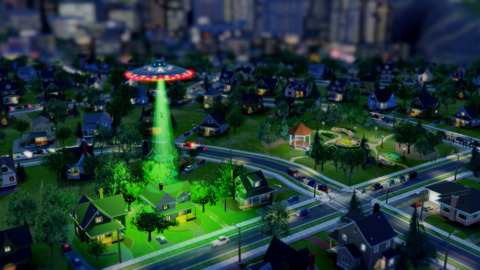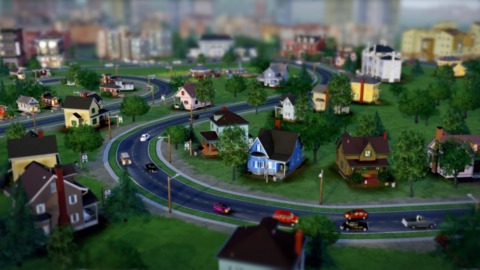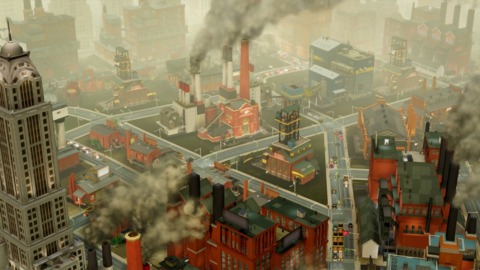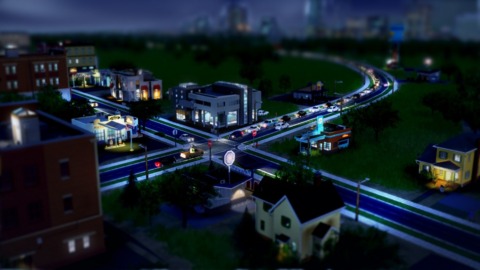Supply, Demand, and SimCity's Global Market
Lead designer Stone Librande reveals how the global market can transform the most environmentally friendly city planner into a high-rolling oil tycoon.
Over time, even gold becomes worthless. For proof, look no further than the hyperinflated economies of World of Warcarft and the Diablo series. From his prior experience working with Blizzard Entertainment, Stone Librande, lead designer on SimCity, has witnessed how rewarding players with a currency, and then building a player economy from that same currency, can have detrimental results.
Armed with this perspective, Librande and his team have set out to create a virtual marketplace that will be economically stable after years of use, while remaining potent enough to influence how you play.
STAR WARS: Prequel Pack - Official Reveal Trailer DEAD OR ALIVE Xtreme Venus Vacation PRISM - Official 2nd Trailer Phantom Blade Zero - 6 Minute "Year of the Snake" Gameplay Trailer The Hundred Line -Last Defense Academy-: Character Trailer 1 Black Ops 6 & Warzone - Official Season 02 Launch Trailer GUILTY GEAR STRIVE: DUAL RULERS - Official Main Trailer Marvel Rivals | The Spring Festival Trailer Kingdom Come: Deliverance 2 Roadmap Trailer Zenless Zone Zero - Astra Yao Character Demo | "Ridu Holidays" BlazBlue Entropy Effect - Hazama Character DLC Gameplay Reveal Trailer Helskate Launch Trailer Code Violet | Announcement Trailer
Please enter your date of birth to view this video
By clicking 'enter', you agree to GameSpot's
Terms of Use and Privacy Policy
The number one thing you need to know is that the global market is not an auction house. "We talked a lot about having an auction-type model where everyone would track their own goods individually," said Librande. "However, this created tons of extra tracking you had to do, and it guaranteed hyperinflation. After an amount of time, new players would be priced out of certain things from the get-go."
Within the global market there's no player-to-player trading, you do not directly control the price of what's sold, and only in-game currency is used. Everything is bought from and sold to the market, and the price of an item changes at fixed intervals depending on the buy and sell patterns of its users. It's pure supply and demand.
Up for grabs are SimCity's 10 commodities. These range from resources pulled straight from the ground (oil) to refined goods (plastic). The average price for these commodities increases proportionally to its level of refinement. Since pulling oil out of the ground is fairly straightforward, it's worth less on average than a computer, which takes several steps to complete.
"The idea was to make each step in that process pay off just a little bit more," Librande said. "Players can run the entire refinement chain by themselves if they have enough city space to devote to these different commodities, or they can simply buy the components needed to complete the chain."


If you want to focus on the global market game, your goal is to "always be a little bit ahead of the curve." To help you do this, the team is designing historical graphs and other tools to aid you in predicting market trends. They also want to give you enough time to put your plans into motion.
"It's not like the stock market where every second the price is changing by pennies," Librande explained. "We want players to start the game, look at the current prices, and develop a strategy for that session based on those numbers." To illustrate, consider oil. It can be refined into either fuel or plastics. If you start a game and notice that plastics are in high demand, simply swap out a few module buildings on your refineries, and you can alter your production stream from fuel to plastics (and swap back during your next session).
Excellence in the global market also requires sufficient infrastructure. Commodities aren't just abstract values represented in a menu. Every drum of oil or pallet of microprocessors takes up physical space in your cities. If you want to stockpile hundreds of drums of oil, you need to build some extra stockyards to hold them all.

Since the global market is partially a player-driven economy, Librande is already assuming some users will try to disrupt the market for pleasure and profit. His team is preparing accordingly. Safeguards are being put in place against extreme market manipulation, such as assigning maximum and minimum price ceilings to each commodity. This means the price for any one commodity will not rise above or fall below a predetermined amount, regardless of market trends.
While the team doesn't want a handful of players to spoil the market for everyone else, they also want market activity to be potent enough to impact city management. Finding this balance is worth the effort. As Librande explained, the market can "pressure" you with handsome payouts or costly price tags. It's a subtle way to mix up play sessions without creating formal missions or objectives.
"A common pattern that we see is players building up these green cities and saying, 'Oh, I'm never going to dig up that dirty [oil] and pollute my city.' But when the cash rewards on the market get large enough, it's interesting to see when and if people tip and start destroying their cities to dig that money out of the ground."

SimCity's global market is designed to be more than a fast way to make some extra cash. It is an optional objective, a nudge in a different direction. You can dip into it sparingly without much commitment, or dive in and structure your entire cityscape around its whims. Its influence can lead you to riches, or to ruin. But most importantly, it can help give your city a story.
"That story I find to be a really important part of what SimCity is about; players being able to run through these fictions I think adds a lot of richness to the game."
Got a news tip or want to contact us directly? Email news@gamespot.com
Join the conversation